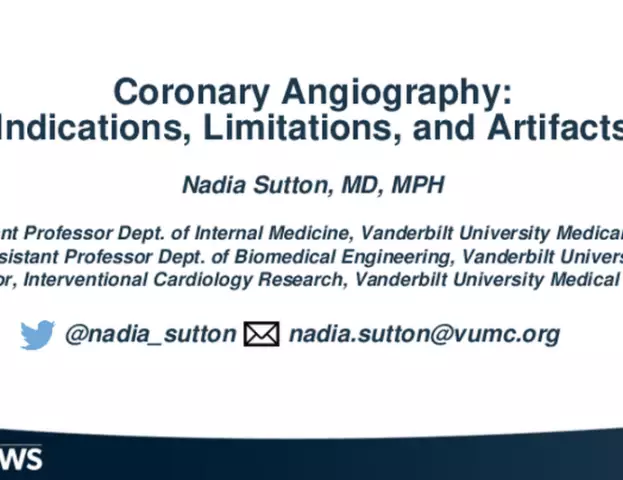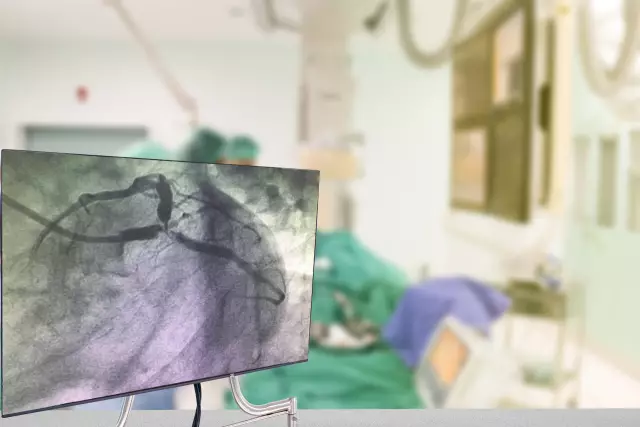- Author Rachel Wainwright wainwright@abchealthonline.com.
- Public 2023-12-15 07:39.
- Last modified 2025-11-02 20:14.
Dementia
General characteristics of the disease

Dementia or dementia is one of the types of cognitive mental disorders associated with the cognitive sphere of a person. Depending on the severity of the symptoms of dementia, the disease can be mild, moderate, or severe.
With a mild degree of dementia, only the patient's professional qualities deteriorate, and his social activity decreases. A symptom of moderate dementia is a loss of skill in using most household items. At the stage of severe dementia, a person is completely maladjusted and dependent on others. He is not able to cope with the simplest problems of hygiene or food intake on his own.
Depending on the cause of the development of dementia, there are two main types of disease: senile dementia (also known as senile dementia) or vascular dementia.
Senile dementia
Senile or senile dementia is caused by age-related changes in the structure of the brain. Changes gradually occur at the neuronal level and are triggered by both insufficient blood supply to the brain and other chronic diseases or acute infections. Senile dementia can be caused by metabolic problems, kidney and adrenal gland problems, immunodeficiency, malignant neoplasms, or neurodegenerative disorders such as Alzheimer's disease.
Senile dementia is an irreversible disorder affecting all cognitive areas of the psyche: thinking, memory, speech, attention. The progression of the disease is accompanied by the loss of all acquired skills and abilities. The ability to acquire new knowledge in patients with senile dementia is also sharply limited.
One of the main symptoms of this type of dementia is the stability of the manifestation of signs of dementia, in contrast to delirium, when the patient has temporary bouts of disorientation.
As a household definition for senile dementia, the expression "senile insanity" is often used. The disease affects older people over 65 years of age. On average, 5-15% of the world's population of retirement age suffers from various manifestations of the symptoms of dementia.
Vascular dementia
Vascular dementia develops as a result of disorders of cerebral circulation caused by damage to the brain tissue. Most vascular diseases can lead to vascular dementia, for example, arterial hypertension, atherosclerosis, cerebral ischemia, etc.
The results of postmortem examination of the brain structures of patients with vascular dementia suggest that the cause of the disease is often a heart attack. Rather, not the myocardial infarction itself, but the cyst formed as a result of it. Moreover, the likelihood of developing vascular dementia does not depend on the size of the damaged cerebral artery, but on the total volume of necrotic cerebral arteries.

A symptom of vascular dementia is a sharp decrease in cerebral circulation and metabolic rate. If the disease is accompanied by laminar necrosis with neuronal death and proliferation of glial tissue, serious complications are possible in the form of embolism (blockage of blood vessels) and cardiac arrest.
Various cardiac pathologies, diabetes mellitus, hyperlipidemia (elevated blood lipids) are considered risk factors for vascular dementia.
Symptoms of vascular dementia are most often diagnosed between the ages of 60 and 75. The disease is 1.5 times more common in men and accounts for 50% of all cases of diagnosed dementia.
Common symptoms of different types of dementia
The average duration of the disease is 5 years with gradual increasing changes in the patient's personality. The first obvious symptoms of dementia are the sharpening of certain traits of a person's character, for example, frugality, stubbornness, suspicion, etc. A sick person with progressive vascular or senile dementia shows conservatism in actions, judgments and has difficulty accepting something new. His interests are narrowed, the ability to think is deteriorating, moral norms of behavior are lost.
As the disease progresses, the person has difficulty recalling recent events. Then the orientation in time and space is lost, although the manner of behavior, speech, facial expressions and gestures remain unchanged for a long time.
Physical symptoms of dementia: exhaustion, tremors of the hands, changes in gait - develop only at the stage of the disease of the most severe degree, along with increasing signs of personality breakdown.
Dementia diagnosis
The diagnostic sign of dementia is atrophic processes in the brain. Their recognition is carried out using computed tomography of the brain. With a pronounced decrease in the patient's cognitive abilities and detected vascular lesions of the brain, it is not difficult to make a diagnosis.
Much is written in medical journals about an additional diagnostic method for differentiating vascular dementia from Alzheimer's disease - the so-called Khachinsky scale. It is a list of 13 symptoms of dementia. A coincidence on 7 points or more indicates the likelihood of vascular dementia, a statement of less than 7 symptoms is characteristic of Alzheimer's disease.
Dementia treatment

There is currently no effective treatment for dementia, especially when it comes to severe senile dementia. However, with proper patient care and symptomatic treatment of dementia, it is possible to significantly alleviate the patient's plight.
The recommended treatment for dementia is a home environment. Hospitalization and placement of a patient in a psychiatric ward is recommended only for severe senile dementia. The desired regimen of the day, which the patient's relatives should provide, is a maximum of activity and simple household chores.
Psychotropic drugs in the treatment of dementia are prescribed only for insomnia or hallucinations. In the early stages of dementia treatment, it is advisable to prescribe nootropics, and later tranquilizers and nootropics.
There is no effective prevention of vascular or senile dementia, as well as treatment.
YouTube video related to the article:
The information is generalized and provided for informational purposes only. At the first sign of illness, see your doctor. Self-medication is hazardous to health!






